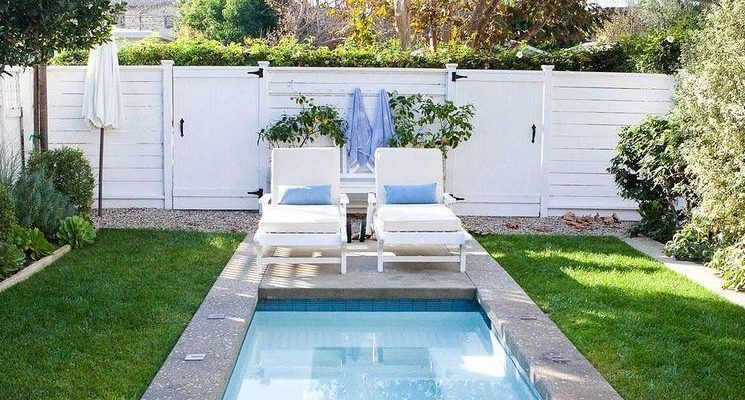Dive into the world of plunge pools, where lounging and cooling off take center stage! Unlike their larger counterparts, plunge pools are all about relaxation rather than swimming or activities. But here’s the exciting part: these compact pools have a special superpower! Not only can they provide a refreshing dip during summer, but when connected to the right pool machinery, they can transform into a cozy hot tub in winter. Talk about versatility! Perfect for those with limited space or anyone who wants to unwind in a pool without the need for laps or swimming. Get ready to plunge into pure relaxation!
Characteristics of a Plunge Pool
Imagine a pool that’s designed for ultimate relaxation and lounging, rather than intense swimming or diving. Welcome to the world of plunge pools, where size truly matters! These pools are smaller than your regular pool, but don’t let their size fool you. They offer a delightful haven for leisurely moments. With a uniform depth that allows for comfortable walking and the option to fully submerge yourself if desired, a plunge pool strikes the perfect balance. But that’s not all! These pools are all about creating a serene atmosphere for unwinding, which is why you’ll often find built-in seats along the sides or the ability to transform into a hot tub during the winter months. It’s like having a multi-purpose relaxation oasis right in your backyard!
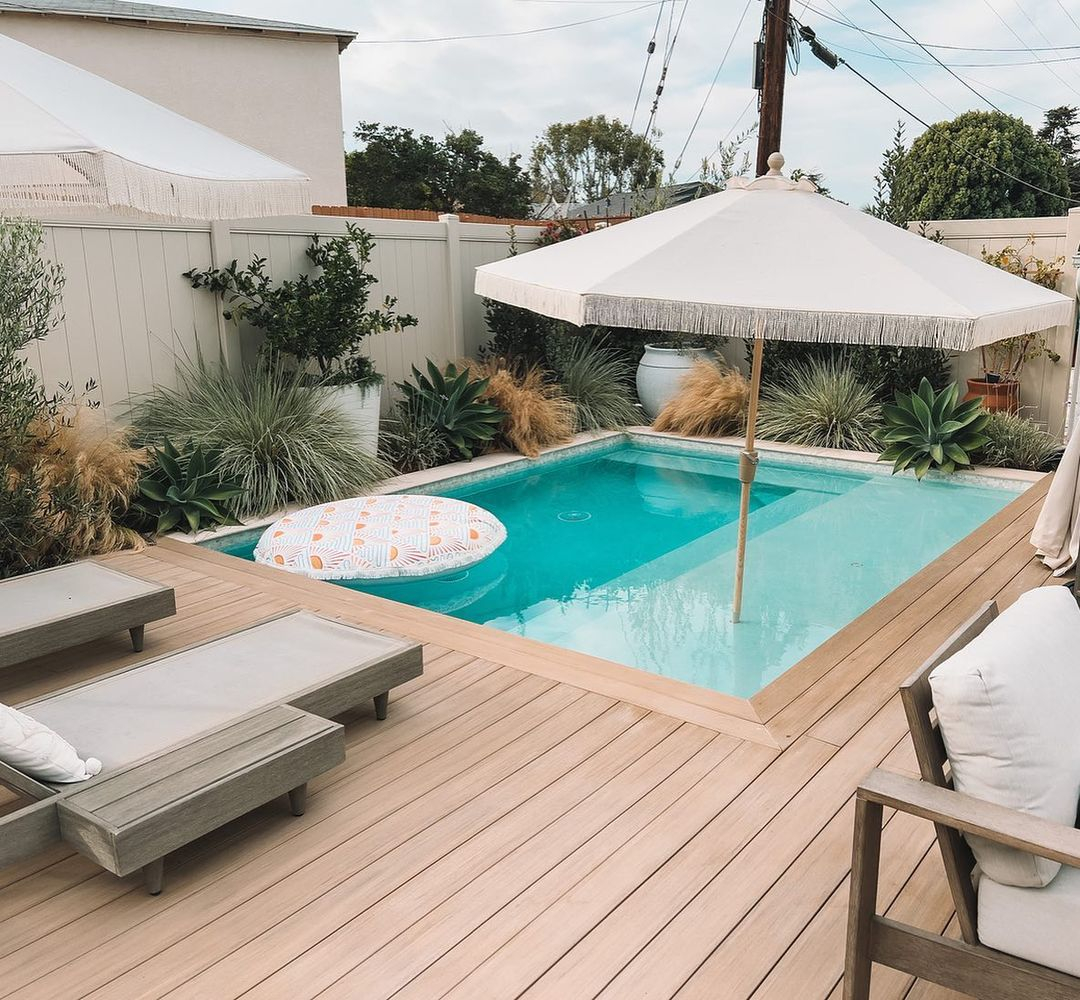
Utilizing the backyard space to its fullest potential, the inclusion of plunge pools offers a delightful way to embrace the summer season. Bringing a touch of luxury to the outdoor setting, these visually appealing pools are accompanied by a hardwood floor, creating a serene atmosphere that fosters relaxation. Additionally, the presence of comfortable lounge chairs further enhances the space, providing a perfect spot for unwinding. Plunge pool from @yardzen
Plunge Pool vs. Regular Pool
Plunge pools are specifically designed for a small group of people to comfortably sit and unwind. Compared to regular pools, they boast a compact size and a uniform depth that encourages leisurely strolls and pure relaxation. But here’s the exciting part: during winter, when connected to a pool heater, a plunge pool can transform into a luxurious hot tub experience. And the best part? Heating a plunge pool to hot tub temperatures is much more cost-effective than heating a larger pool.
Now, let’s dive into regular pools, which are on a grander scale. These pools are significantly larger than plunge pools, offering a variety of depths to cater to different activities, including diving. With a regular pool, the possibilities are endless! You can add fun accessories like fountains, automatic cleaners, and even water slides for an extra splash of excitement. However, it’s important to note that the larger size of a regular pool makes it less suitable for a hot tub setup. The increased volume of water requires more energy and resources to heat, making it less cost-effective.
Furthermore, regular pools come with a more complex pool system due to the added accessories, leading to higher maintenance costs in the long run. The larger amount of water to maintain also contributes to the increased expenses. So, while regular pools offer versatility and entertainment options, plunge pools shine when it comes to intimate relaxation and cost-efficient hot tub experiences. The choice is yours, whether you prefer the cozy comfort of a plunge pool or the expansive possibilities of a regular pool.
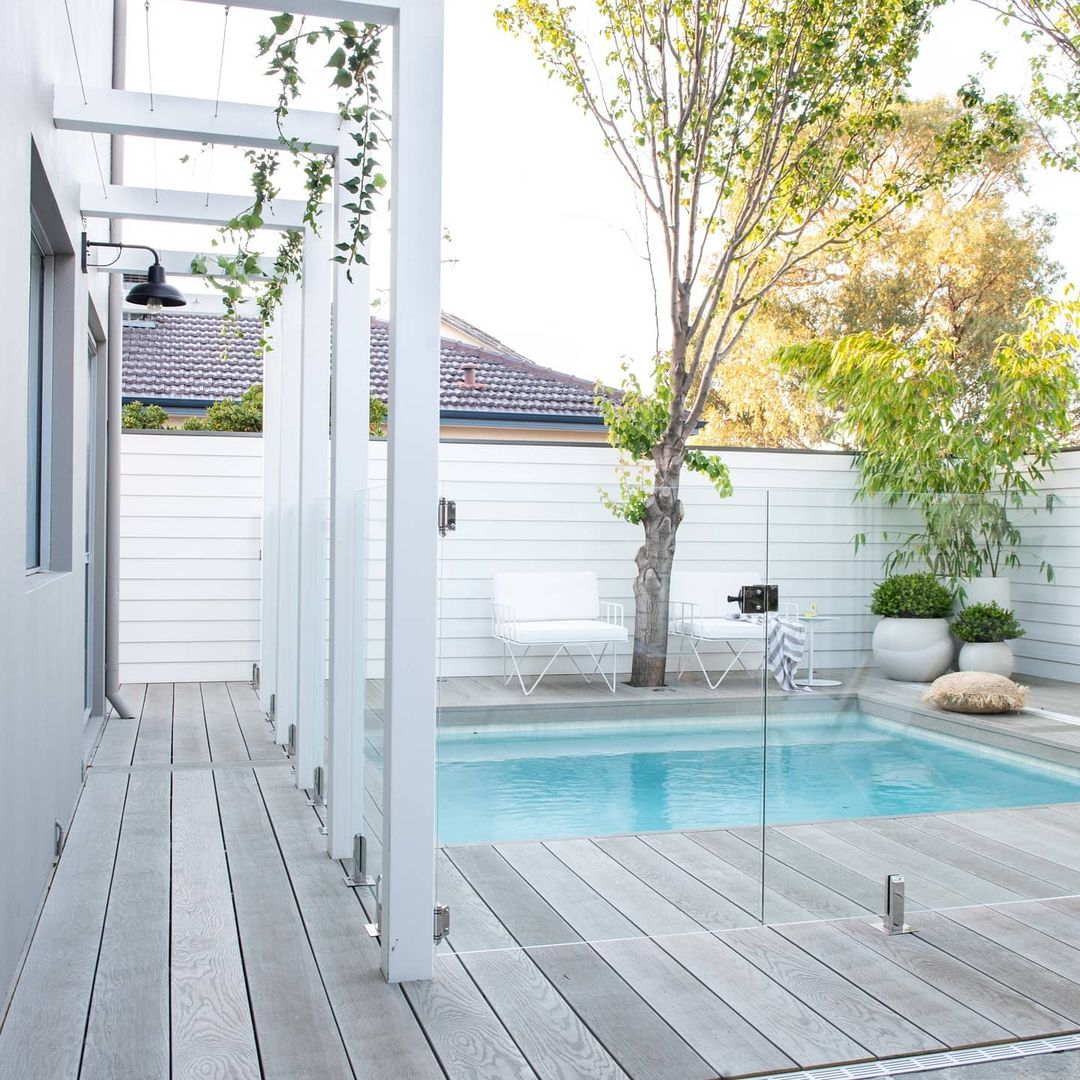
Designed specifically for small yards, this plunge pool may appear unassuming at first glance. Typically situated at ground level or slightly elevated with surrounding decking, plunge pools offer an ideal solution for refreshing dips during the summer. Moreover, these pools often incorporate jets for added massage features, allowing for a truly relaxing and rejuvenating experience. Plunge pool from @conceptmaterialsau
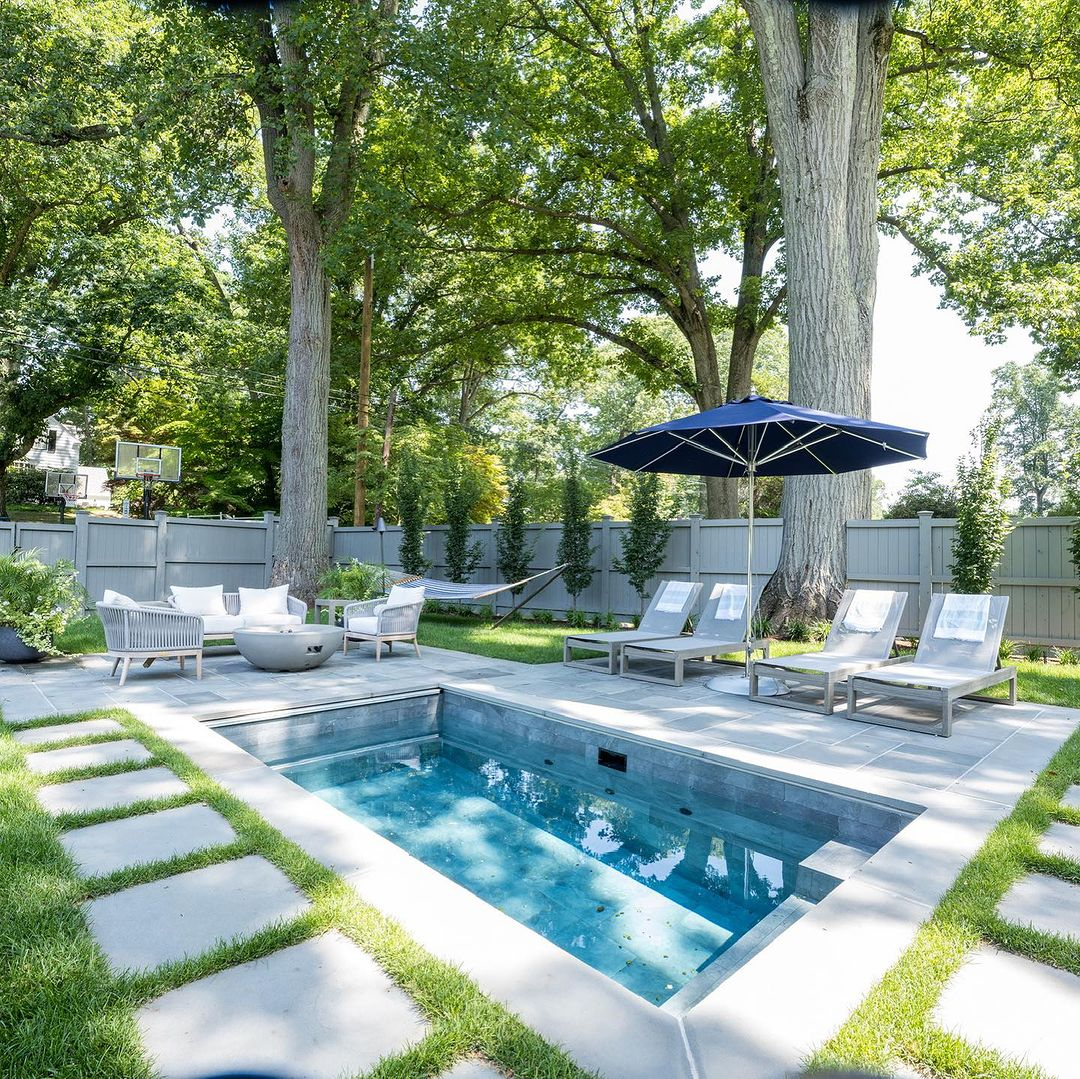
Introducing a brand-new wading pool, this space-efficient plunge pool is perfectly suited for homes with limited yard space. Not only is it cost-effective, but its smaller size also means it requires less water to fill and maintain compared to larger pools. This results in reduced cleanup efforts and decreased expenses for heating and maintenance, making it an economical choice for homeowners. Plunge pool from @my_designport
Depth
For optimal lounging and relaxation, the ideal depth range for a plunge pool is typically between 5 and 7 feet. This depth strikes a perfect balance, encouraging you to stroll and unwind within the pool rather than focusing on swimming. It sets the stage for tranquil moments of blissful repose, inviting you to take leisurely steps and fully immerse yourself in the serenity of the pool. So, whether you’re looking to cool off or simply bask in the soothing waters, a plunge pool with a depth of 5 to 7 feet creates an inviting oasis for ultimate relaxation.
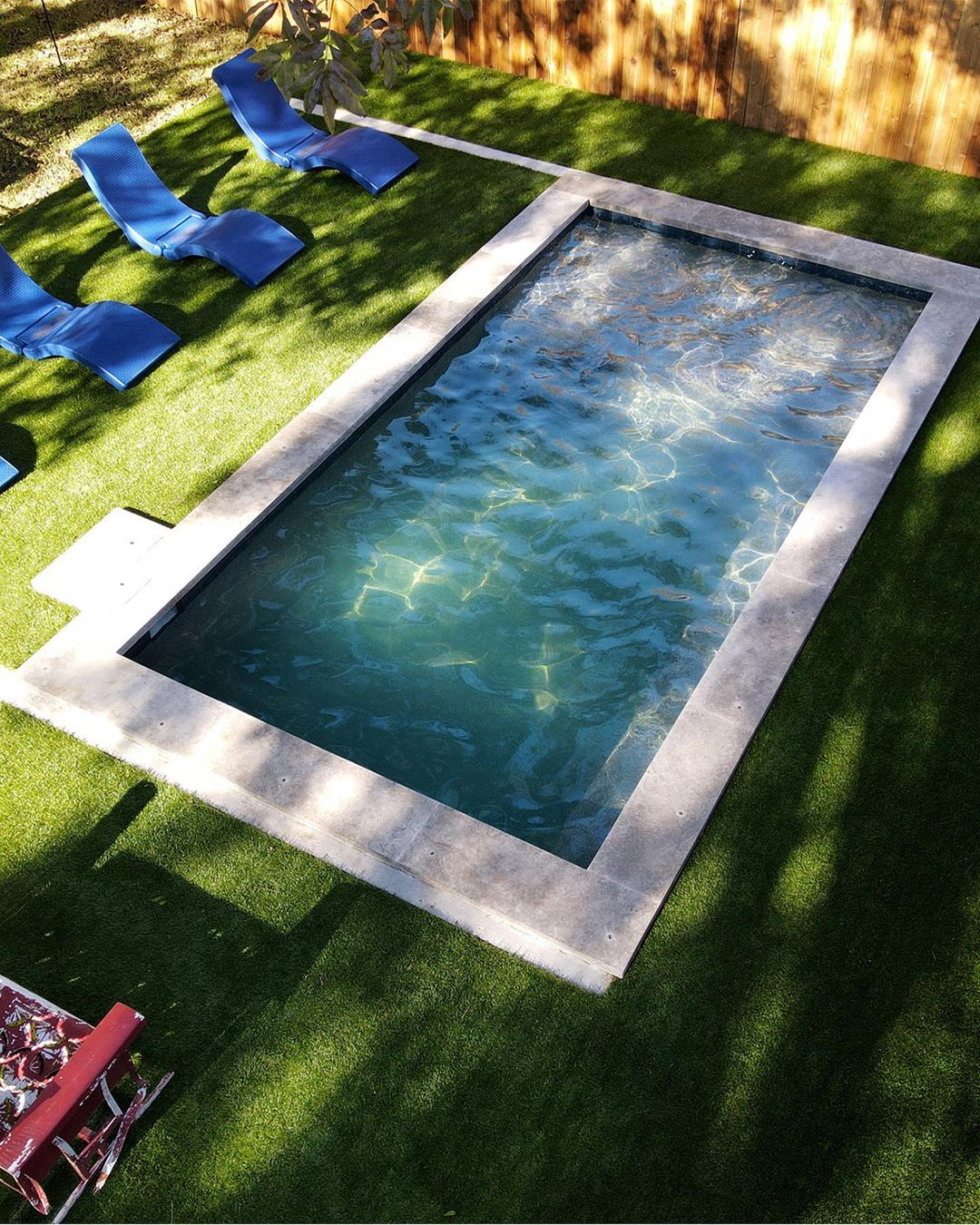
Plunge pools, known for their refreshing nature, have the ability to stimulate blood circulation due to their shallow design, making them ideal for relaxation purposes. The limited range of motion provided by these pools can assist in reducing inflammation, making them a popular choice for hydrotherapy. Additionally, plunge pools offer the convenience of heating options, similar to regular pools, enabling their year-round usage. Plunge pool depth from @texastinypools
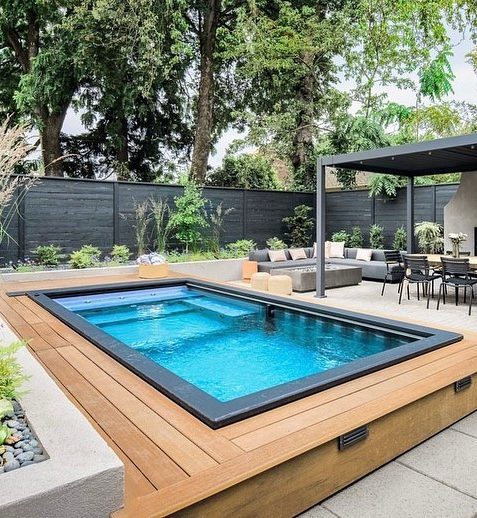
This exquisite wading pool showcases clear water and a bottom adorned with seamless and versatile tiling, allowing for a delightful soaking experience. The exterior finish incorporates a variety of wood materials, creating an organic and visually appealing aesthetic. Shallow plunge pool from @yardzen
Cost
When it comes to choosing between a plunge pool and a regular pool, cost considerations come into play, and here’s where the plunge pool takes the spotlight. Due to its smaller size, a plunge pool is generally much cheaper, both in terms of installation and ongoing maintenance. The installation process for both types of pools will involve similar steps, with the main difference lying in the quantity of materials required and the extent of excavation needed.
Maintenance costs also tilt in favor of the plunge pool. With less water to keep clean, maintaining a plunge pool becomes more cost-effective. You’ll need fewer chemicals and potentially smaller pool machinery to ensure a sparkling pool. It’s a win-win situation for your wallet and your relaxation time!
It’s important to note that adding a pool heater to either type of pool will increase your running costs. However, the energy required to heat a plunge pool is significantly lower compared to a regular pool. So, even if you opt for the luxury of a heated plunge pool, you can still enjoy the warmth while keeping your energy consumption in check.
In summary, if affordability is a key consideration, the plunge pool emerges as the more budget-friendly option. From installation to maintenance and heating costs, a plunge pool offers a delightful balance of relaxation and savings.
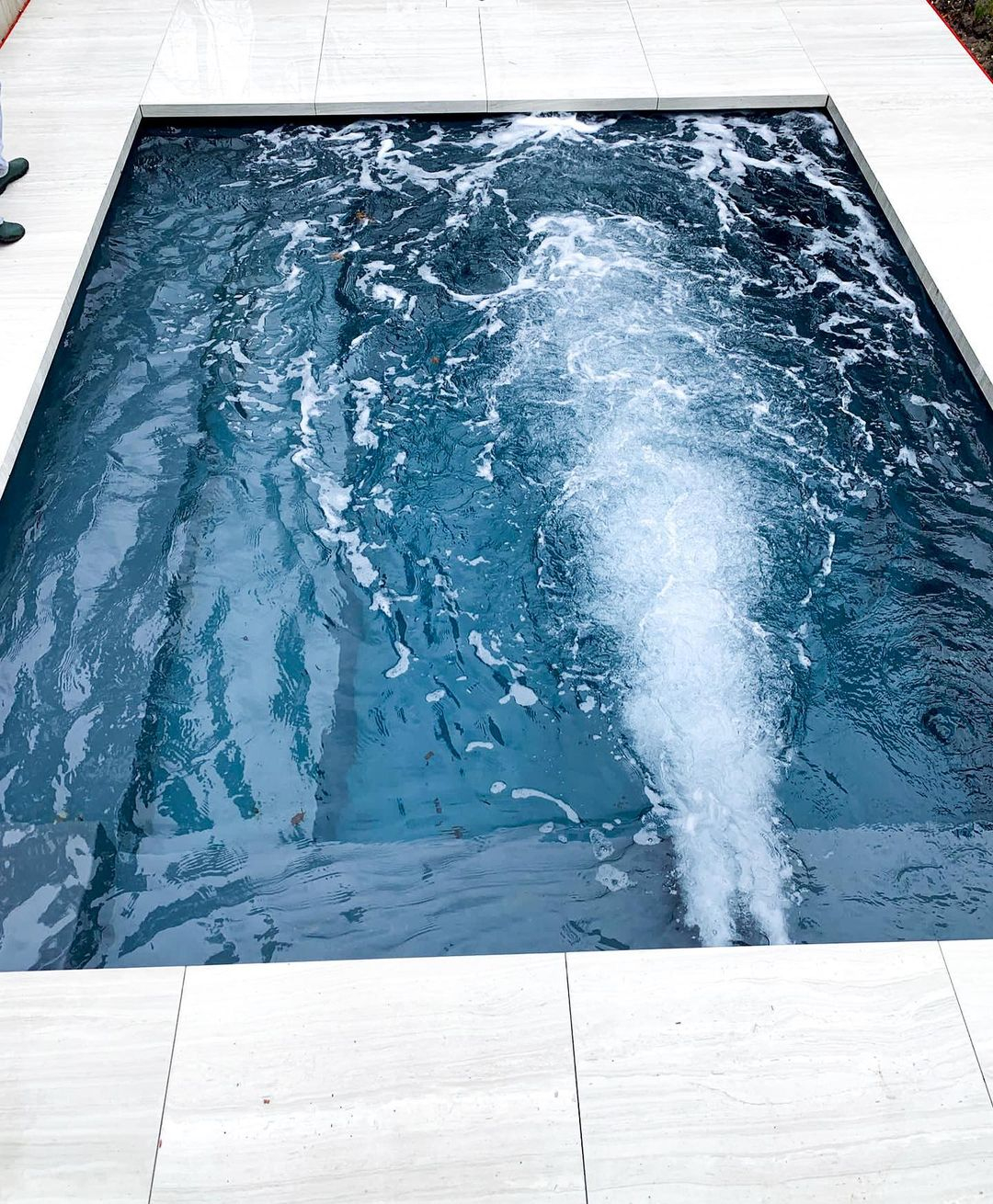
The installation of plunge pools is a quicker process compared to larger pools, thanks to their compact size that requires less water. This leads to reduced chemical usage, lower cleaning requirements, and less maintenance. Moreover, additional savings can be achieved by minimizing heating requirements for the pool’s equipment. Cost plunge pool from @boszwembaden


